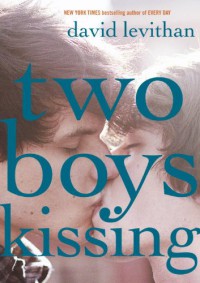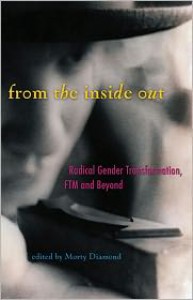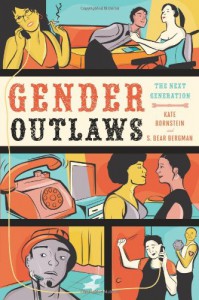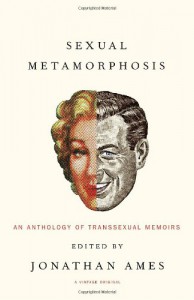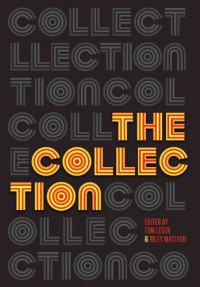
This is going in my #LGBT tag because there is at least the Malinda Lo story, but unfortunately its 99% hetero shit. Basically the majority of my thoughts on this anthology was "it could have been gayer, also there was an opportunity for a gay trans man and you missed it." Here are my thoughts now that I've finished this:
The Key by Rachel Hawkins: Honestly very boring and forgettable. I didn't even remember reading this by the time I finished the anthology.
Figment by Jeri Smith-Ready: This was okay I guess, not very memorable or engaging, but it felt extremely out-of-place with the rest of the stories.
[vvv these three are my favs! vvv]
The Twelfth Girl by Malinda Lo: I LOVED this story. It has some Girl/Girl fraught romance going on and its great. Malinda Lo is an author I want to like, but whose novels are always impossibly boring to read and never end in a satisfying way (why can't gay couples just be together and be happy?) But for some reason this short story was the best thing by Lo I've ever read, which is a little sad because the writing is still pretty boring. But not NEARLY as boring as her full-length novels. The characters were actually engaging and felt like their own people, the interaction between them was fun, the imagery was repetitive but interesting.
The Raven Princess by Jon Skovron: I've literally never heard of this author before this short story but I think it's one of my favorite stories. The twist that the princess actually prefers to be a raven and the hunter decides joining her in ravenhood is preferable to a life where he would be forced to kill something, that's perfect. I need more stories where shedding humanity and leaving human society is a positive thing. Also of course, the most excellent part of the story: adorable gay giant couple and their tiny human child. I wish we got to see more of them, I would read an entire novel about giant husbands and their baby raising adventures.
Thinner Than Water by Saundra Mitchell: This is a story about parent-child incest. There is a lot I have to say about this short story, and a lot I have said on my personal blog which will never be linked here. What I will say: it is extremely, extremely important to have media that shows anger and violent, vengeful thoughts are an extremely common and normal part of the thought process of a sexual abuse survivor. To see it written out so clearly, with no judgment, so incredibly relatable as if my own thoughts were taken and put into words by a stranger, was amazing in ways I can't properly put into words. Basically every thought the main character had is one I had. And the same thing happened- the total dismissal that there is anything wrong going on even when it is found out. The blame and disgust being directed at me, a child, instead of the guardian who had all the power in the situation. Such an accurately written account of rape culture. It would have been interesting if the story explored how survivors are treated when their violent urges borne out of self-defense are judged more negatively than anything their abuser did too, but the ending with the father being sent to the torture chambers is more than I've ever gotten before so I'll take it.
[^^^ these three are my favs! ^^^]
Before the Rose Bloomed by Ellen Hopkins: I actually don't like Hopkins' poetry so I skipped this after a few pages.
Beast/Beast by Tessa Gratton: While the writing in this story is LOVELY, heterosexual Beauty and the Beast retellings are a dime a dozen. This isn't even a very different retelling, there wasn't anything new. I just pretended Beauty was a boy and mentally replaced all mentions of 'girl' in my mind to get any enjoyment out of the story.
The Brothers Piggett by Julie Kagawa: I appreciate the message this story sends but I don't think I had fun reading it. I would have younger boys read this though, for the message.
Untethered by Sonia Gensler: Didn't leave much of an impression.
Better by Shaun David Hutchinson: This story started out interesting but then it got to a completely and utterly unnecessary rape scene that was so badly written and then totally ignored for the rest of the story. Fuck this author.
Light It Up by Kimberly Derting: AMAZING retelling of Hansel and Gretel. The imagery and atmosphere is very good. The characters definitely sounded like young siblings, though I wish the word 'bitch' didn't need to be thrown around so much to drive that point home. I'm really confused how a giant barbecue grill was in the wooden cabin or how the villain got missing person posters for the random hikers he ate, but am willing suspend disbelief.
Sharper Than A etc by Christine Johnson: Uninterested, skipped.
A Real Boy by Claudia Gray: This was basically the same as every other "boy-shaped robot becomes too human, falls in love girl" story. Why does it always have to be a binary gendered robot? Why can't it be a genderless robot? Think outside the box here people.
Skin Trade by Myra McEntire: Skipped the fuck out of this. If something reads exactly like a PUA fantasy from the get-go with no clear criticism of that thought process, it is not worth the time to read.
Beauty and the Chad by Sarah Rees Brennan: Okay, this was cute, but also I am soooooooooooo sick and fucking tired of these "girl crossdresses as boy, boy falls in love thinking she's a boy, thinks he's ~gay~ but she reveals she's a girl so its okay happily ever after" HOW FUCKING STRAIGHT CAN YOU GET! Oh my god. Just write two dudes falling in love, its okay to write about two guys in love, 99.99999% of media is straight as shit. Throw us a bone. Or hey, you know who has even less media representation? Gay trans men. (Like me, hi!) No, I've literally never ever seen gay trans men in any published work of fiction. The one time is in a German film no one who isn't trans cares about. But these girls-crossdress-make-straight-guys-question-sexuality stories are everywhere and I hate it I hate it I hate it. Cishet default is the worst default.
The Pink by Amanda Hocking: At this point I was totally worn out and done with how aggressively heterosexual and cis these stories were so I have no positive thoughts to this one. It was more normative straight romance and was badly paced and had multiple plot holes, the end.
Sell Out by Jackson Pearce: Boring internal monologue and then he kisses a dead girl. What an anticlimatic end to the anthology.

 Things I liked:
Things I liked:


